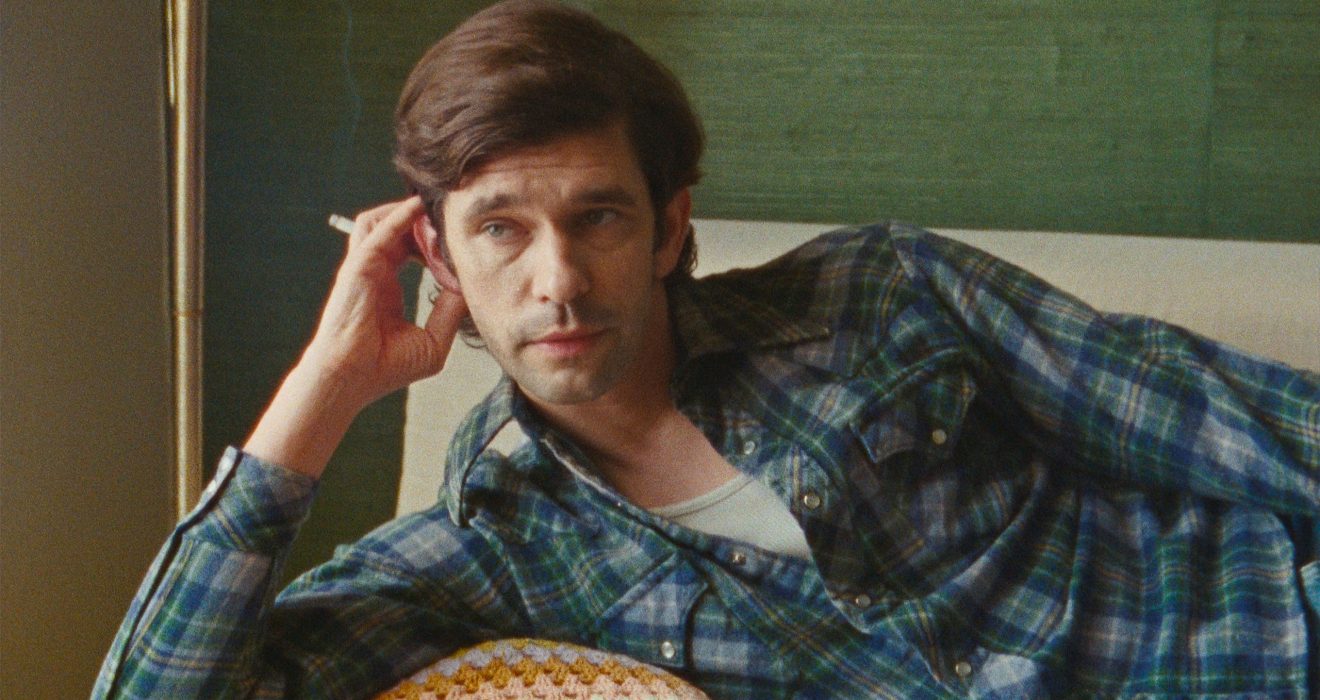“Peter Hujar’s Day” Review
Director: Ira Sachs Screenwriter: Ira Sachs Cast: Ben Whishaw, Rebecca Hall Distributor: Janus Films Running Time: 76 min. MPAA: Not Rated
Director Ira Sachs does something amazing in how he frames a mere interview. Peter Hujar’s Day is a simplistic film on paper, based on a recorded conversation between photographer Peter Hujar and friend/writer Linda Rosenkrantz in 1974 New York City. The conversation is a compelling time capsule that would’ve been sufficient as an audio recreation, given that the tapes were not preserved, while the transcript remains. But there’s a beauty in how Peter’s meandering words paint a human portrait of how an artist thinks and functions in a manner more grounded than grandiose. Every conversation need not be one of poetic importance; sometimes it’s just interesting to talk about the cost of Chinese food.
What makes Peter such an intriguing interview subject, beyond being played with ease by Ben Whishaw, is how easily his conversations can shift from work to lingering thoughts. He’ll often go over his connections to Susan Sontag or what it was like to see Allen Ginsberg’s apartment, but then stumble into talking about hairy moles or rock bands. He’ll often get lost and ask what he was talking about in the first place. That’s where Linda (Rebecca Hall) comes in to steer Peter back on track and often leads him closer to making a point in his many passages. She makes the interview feel more like a discussion, even if she only occasionally chimes in with her own two cents. Linda knows how to keep the talk going from gigs to chores, making even the most mundane of routines seem intriguing when spoken through someone like Peter.
Such a film could easily be staged as a short play, given how it lingers on conversations in Linda’s apartment. Yet it never feels stagnant or as if the characters are locked into place, akin to My Dinner with Andre. Peter and Linda won’t just have lunch, but get up for a drink, lie on the couch, or have a smoke on the roof. The characters migrate around as the talk continues, where even shutting a window doesn’t stop the flow. The environment only adds to the era’s authenticity, keeping 1970s New York City always in the background. The busy city keeps moving while two artists converse on a bed. The times they stare out at the sky are nothing short of beautiful in their simplicity, especially with the retro-favoring of old film grain. The interview will even be abandoned entirely for scenes of photography, highlighting a break in the talks when there’s bread to be made, approached more with silence for the craft.
There’s a sense of comedy and tragedy in how the film becomes aware of its assembly. The bleeding in of clackboards and film cuts serves to make the audience aware of the assembly, but still recognize that aspect through the 1970s. The sadness comes in the form of the tape recorder. At one point, Peter will question how much tape is left, and Linda gives an answer before returning to the conversation. It’s a believable question, but also one that reveals how finite this interview will be. By the time the film reaches the end, there’s almost a reluctance to push the stop button on the tape. And when Linda finally ceases recording, there’s a sad silence for this moment in time coming to an end. I’m sure Peter and Linda didn’t feel such somber thoughts when the tape was finished, but their performances perfectly exude that faded expectation, willing to accept their mortality, which Peter would face a decade later due to AIDS.
Peter Hujar’s Day paints a complete portrait of an artist with a routine so relatable it’s beautifully sublime. There are tales of amazing parties and odd concerns over how much food you can eat. While the interactions with celebs and photography jobs might seem like the most noteworthy aspects, it’s the simple highlights of the day that become the most engrossing, revealing a familiar person who gets stomach aches and thinks about where to get the best take-out. Wishsaw’s performance grounds this notable photographer with a level of humanity, and Hall makes us all feel like that one person hanging out and letting the words lead us. Many biopics aim to stress what makes a figure so important; Ira Sachs seems to argue that Peter is a guy you’d love to have coffee with, whether he was talking about photography or not.


